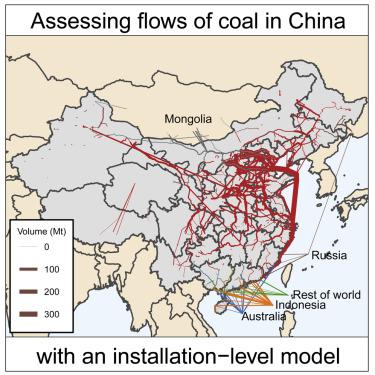Joule ( IF 39.8 ) Pub Date : 2022-04-20 , DOI: 10.1016/j.joule.2022.03.008 Jorrit Gosens , Alex B.H. Turnbull , Frank Jotzo

|
China aims for net-zero carbon emissions by 2060 and an emission peak before 2030. This will reduce its consumption of coal for power generation and steelmaking. Simultaneously, China aims for improved energy security, primarily with expanded domestic coal production and transport infrastructure. We analyze effects of both these pressures on Chinese coal imports, with a purpose-built model of China’s coal sector with installation-level detail, representing roughly a 300-fold increase in granularity versus earlier models. We find that reduced Chinese coal consumption affects seaborne imports much more strongly than domestic supply. Recent expansions of rail and port capacities, which reduce the costs of getting domestic coal to southern coastal provinces, will further reduce the demand for seaborne thermal coal and amplify the effect of decarbonization on coal imports. Seaborne coking coal imports are also likely to fall because of the expanded supply of cheap and high-quality coking coal from neighboring Mongolia.


























 京公网安备 11010802027423号
京公网安备 11010802027423号